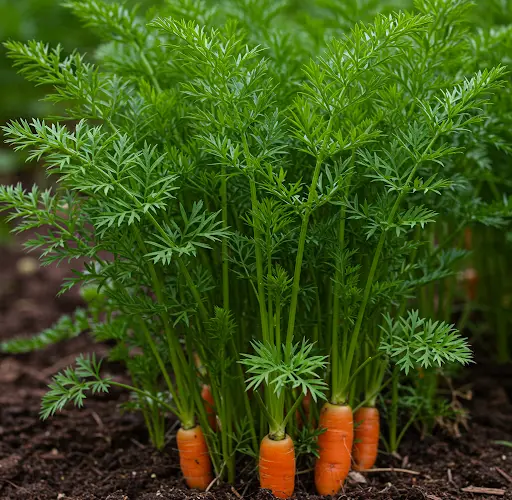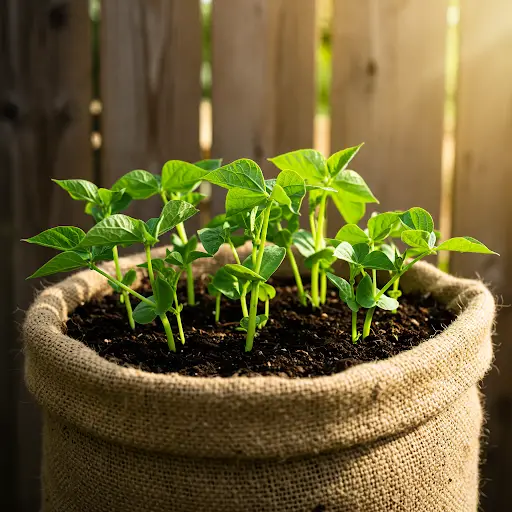How to Fertilize Carrots Naturally for a Bountiful Harvest
Carrots are among the most beloved root vegetables in home gardens. Their crisp texture, natural sweetness, and high nutritional value make them a staple in kitchens around the world. But growing large, perfectly shaped, and flavorful carrots requires more than just planting seeds and regular watering. One of the most important elements in successful carrot cultivation is proper fertilization.
Understanding Carrot Needs
Carrots have specific growing requirements, particularly when it comes to soil and nutrient supply. Their long taproots need loose, well-draining soil that allows for deep, unobstructed growth. Ideally, the soil should be light and sandy, enriched with organic matter to support healthy development.
Even in favorable soil conditions, carrots often benefit significantly from additional support in the form of organic or natural fertilizers. Fertilizing carrots is not just about feeding the green foliage—it’s primarily about encouraging strong, healthy root development, which is the edible part of the plant.
Key Nutrients for Carrot Growth
To grow healthy and robust carrots, a balanced supply of essential nutrients is necessary. Deficiencies in key elements can lead to stunted growth, deformed roots, cracking, or other developmental problems. The most important nutrients for carrot growth include:
-
Potassium (K): Vital for root development and overall plant health. It enhances water regulation and nutrient transport within the plant, making it essential for plump, well-formed carrots.
-
Phosphorus (P): Promotes root formation and helps improve disease resistance. It supports energy transfer within the plant and strengthens root systems.
-
Calcium (Ca): Important for cell wall strength, calcium helps prevent cracking and improves the texture and firmness of the roots.
-
Nitrogen (N): Although needed in smaller amounts compared to leafy greens, nitrogen supports early growth and foliage development. An excess of nitrogen, however, can lead to excessive leafiness and underdeveloped roots, so balance is key.
Organic Fertilization: A Natural Boost
Natural fertilizers provide a gentle, effective way to enrich the soil and support plant development without the harsh side effects of synthetic alternatives. They are especially valuable in home gardens where long-term soil health is a priority.
One simple and effective homemade liquid fertilizer can help deliver the key nutrients your carrots need. This blend combines potassium, phosphorus, calcium, and trace nitrogen in an easy-to-make solution using common household and garden materials.
DIY Liquid Fertilizer for Carrots
Ingredients:
-
1 cup of wood ash
-
1 cup of used coffee grounds
-
1 tablespoon of baking soda
-
10 liters of water
Preparation:
-
In a large container or bucket, mix the wood ash and coffee grounds.
-
Add the baking soda and stir well.
-
Pour in 10 liters of water and stir the mixture thoroughly.
-
Let the blend sit and steep for 24 hours, stirring occasionally to keep the materials evenly distributed.
-
After 24 hours, strain the liquid through a fine mesh sieve or cloth to remove coarse particles.
Application:
Use this liquid fertilizer by watering your carrot plants directly at the root zone. This ensures that the nutrients are delivered exactly where they’re needed most. Repeat the application every three weeks throughout the growing season for best results.
This natural fertilizer delivers a balanced mix of nutrients while also improving soil structure and microbial life—two factors that contribute greatly to carrot size and flavor.
Final Tips for Growing Great Carrots
-
Prepare the Soil Well: Before planting, loosen the soil to a depth of at least 12 inches and remove rocks or compacted clumps that might interfere with root development.
-
Avoid Fresh Manure: Using fresh manure can lead to forked or twisted roots due to excessive nitrogen and high microbial activity.
-
Water Consistently: Keep the soil evenly moist but not soggy. Inconsistent watering can cause splitting or irregular growth.
Conclusion
Growing large, healthy carrots at home is entirely achievable with the right care, especially when it comes to fertilization. By using a simple, natural liquid fertilizer, you can provide your carrots with the nutrients they need to thrive. Not only is this method effective, but it’s also sustainable and easy to implement using materials you may already have on hand. With consistent care and nutrient support, your garden can yield crisp, sweet carrots that are as nutritious as they are delicious.



